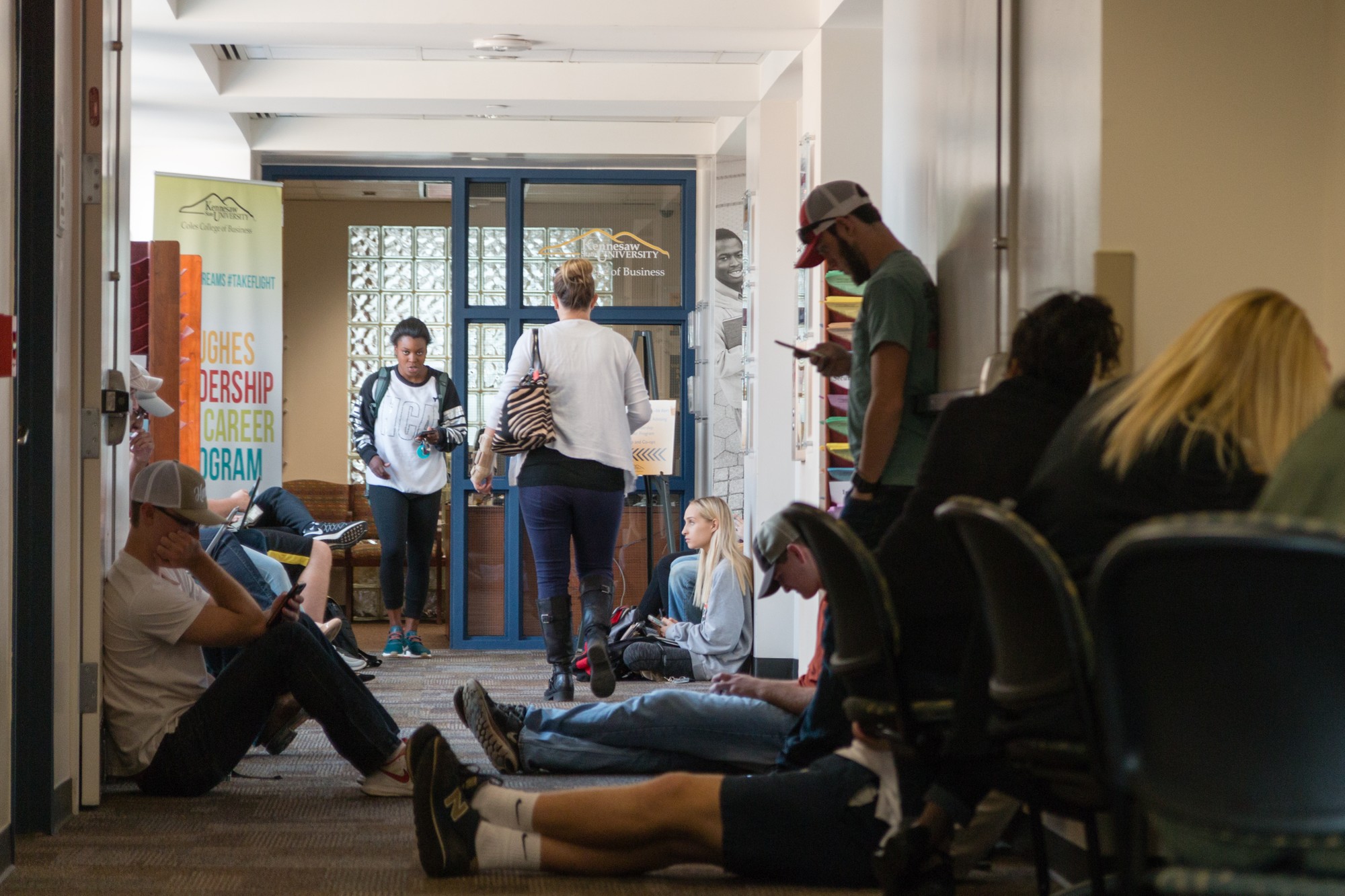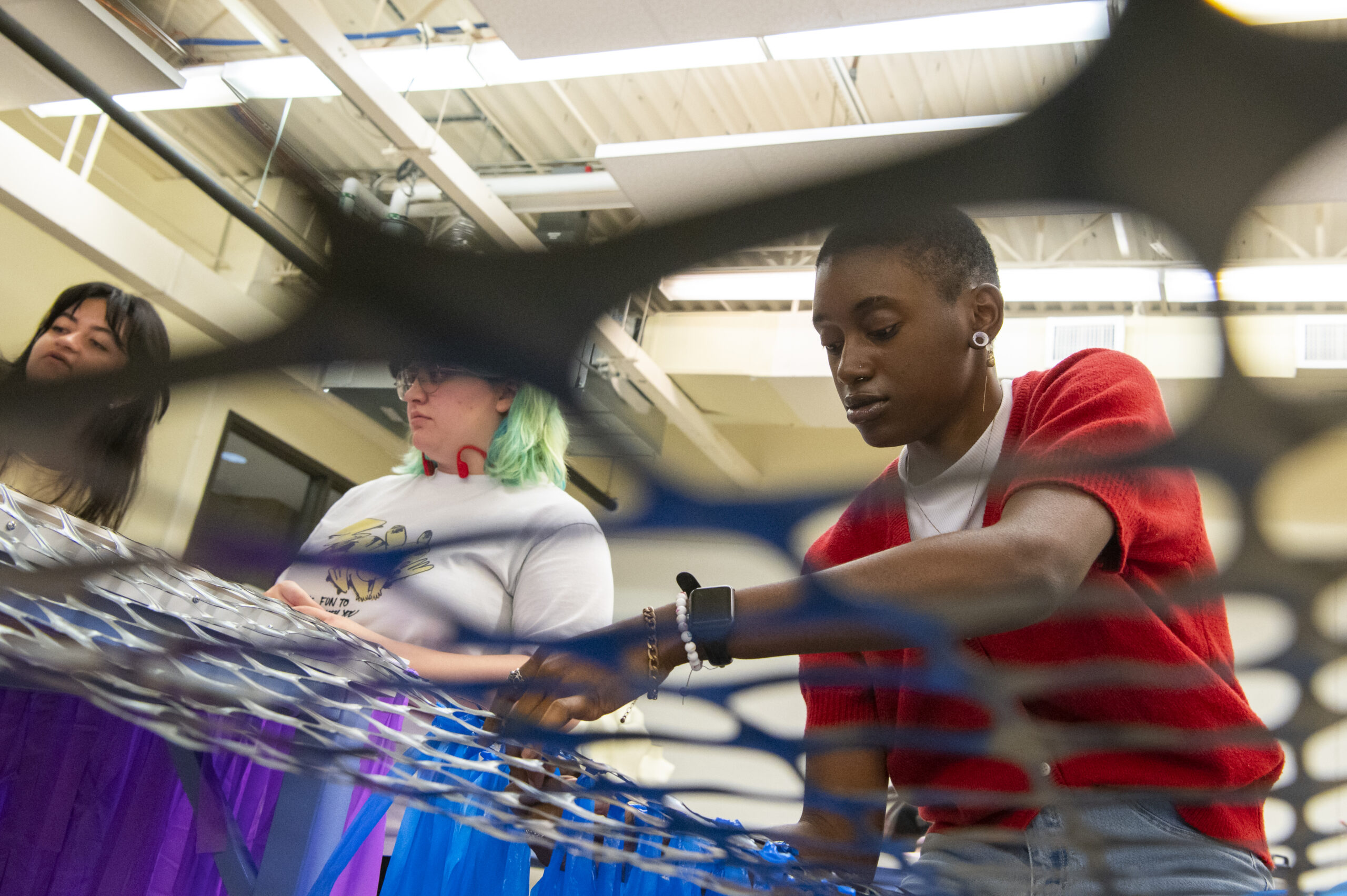A quick phone call to the Office of the Provost and Vice President for Academic Affairs confirmed that Kennesaw State University does not have any official policy stating that a student is ‘allowed’ to leave after a set amount of time if a professor has not shown up for class.
Yet, somehow, the myth that there is an official rule allowing this remains ever-prevalent. Wishful thinking will prevail, I suppose.
I think the rumor continues to stick around simply through word of mouth — that’s how I learned about it, after all.
The conversation usually goes much like this:
“The professor’s officially late, we can leave in 15 minutes,” a classmate announces from the hallway floor beside you.
Others nod in agreement and a discussion ensues on the exact amount of time we need to wait before we are allowed to leave.
“I thought it was 10,” another classmate pipes in.
“No, it’s 15, but 20 if it’s a doctor,” says another student matter-of-factly.
Meanwhile, I stand back listening to these conversations with a raised brow — wondering where on earth my classmates learned this information.
Senior English and professional communication major, Kevin Foley, said he isn’t sure what the official school policy is, but has had professors tell him before that it was 15 minutes.
“I’m from the SPSU campus, so they may have been mixing it up with old rules,” Foley said. “I’ve had another professor say that, ‘Even if I’m 15 minutes late, you need to stay, because I’ll be there by 30 minutes.’”
Most college students have access to a smartphone and KSU has free internet, so the next logical step after realizing your professor is late is to check D2L BrightSpace and your student email for a message from your professor.
Or so one would think.
A few times, I’ve had to inform the chattering group that the professor sent an email an hour previously letting us know he or she would be 10 minutes late, for whatever reason.
KSU alumnus Nellie Panasyuk said she took a lot of night classes and felt like professors were late at night more often and that everyone always had a different view on how long they were supposed to wait.
“Some kids had the audacity to not wait at all, but most people would wait 10 to 15 minutes, or even up to 30,” Panasyuk said. “There was always a section of people that would leave at each mark — 10 minutes, then 15 minutes and so on. People were so certain that their times were right.”
It stands to reason that professors should let their students know if they will be late, as it is the respectful thing to do, but this doesn’t always happen.
“From time to time, certain professors would let us know at the beginning of the semester not to wait more than a certain amount of time, but said they would try to let us know ahead of time if they were going to be late,” Panasyuk said.
KSU English professor Andrew Plattner said he thinks that waiting 15 minutes when a professor is late is sufficient.
“Students are busy too,” Plattner said. “It should vary from class to class, but not greatly. If we met three times a week, it’s easier to cancel a class and catch up. So the variation would be on how many times a class meets. If I was late for my class, then I would probably have someone go down there and dismiss them, but for a once a week class, I would have someone ask them to wait.”
I tend to agree with Plattner’s assessment. If missing a class will put the schedule too far behind, then it would be beneficial to everyone involved to wait a few extra minutes. That being said, if I haven’t already been made aware that the professor will be late, and there is no word from him or her, then I wouldn’t wait any longer than 30 minutes, no matter what the class was.
This myth spreads beyond KSU’s walls as well. Before transferring to KSU, I went to Chattahoochee Technical College and the same mentality was present there as well.
Journalism professor Matt Duffy said that they also had the same myth when he was an undergraduate at East Carolina University.
“The myth was that you had to stay the entire time for a ‘full’ professor,” Duffy said. “For adjuncts, it would be like five minutes, then it would go to 10 minutes for an assistant or associate professor and then 20 or more minutes for a full professor. For PhD’s, the wait was always twice as long.”
In the end, the best way to assess what to do in these situations is simple: ask your professor. Each instructor is going to have a different personal policy on the issue, so if you want peace of mind that you won’t be marked absent for leaving after waiting for 10 minutes, then just ask.



